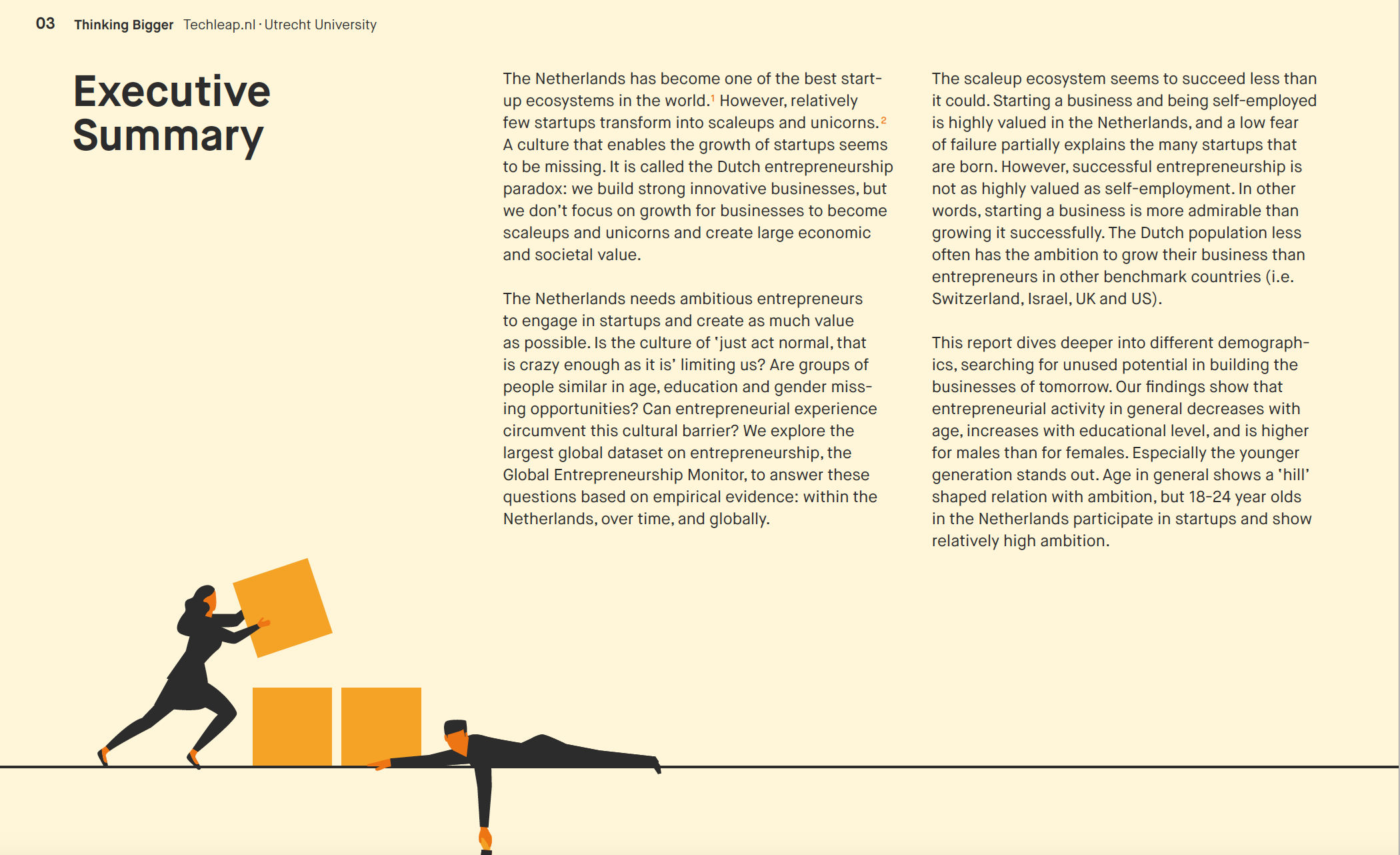
Download the full report
To learn how the entrepreneurial culture differs in demographics and how we can kickstart an ambitious culture in the Dutch ecosystem, we encourage you to download the full report for free!
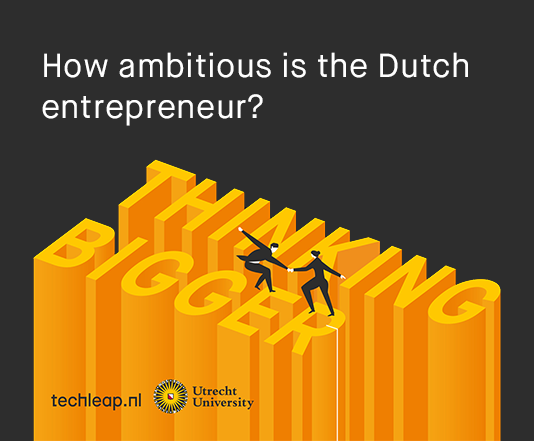

To learn how the entrepreneurial culture differs in demographics and how we can kickstart an ambitious culture in the Dutch ecosystem, we encourage you to download the full report for free!
What are some of the key takeaways from the report, you might ask? We’ve summarised them in 4 points.
Most entrepreneurs are not focused on scaling their business models. This is especially the case for the Netherlands. Data from the Global Entrepreneurship
Monitor (GEM) shows that compared internationally the Dutch place higher value on self-employment and starting your own business than growing it successfully.
This is referred to as the Dutch Entrepreneurship Paradox. The Dutch have a relatively low fear of failure paired with a high appreciation of entrepreneurship as a career choice, but their appreciation for successful entrepreneurship has not reached similar enabling levels. This suggests that there is still untapped potential to leverage the benefits of scaling up.
We must transcend the culture of ‘Just act normal, that is crazy enough as it is’ and give entrepreneurs the possibilities to set their ambitions high.
Another challenge in translating ambition levels to success is the industry in which entrepreneurs are active. The biggest and fastest-growing companies today are tech-driven companies. Dutch female entrepreneurs, however, are less frequently involved in technology- or innovation-related activities than male entrepreneurs. Figure 1 highlights this gender difference in tech- and innovation-driven entrepreneurship.
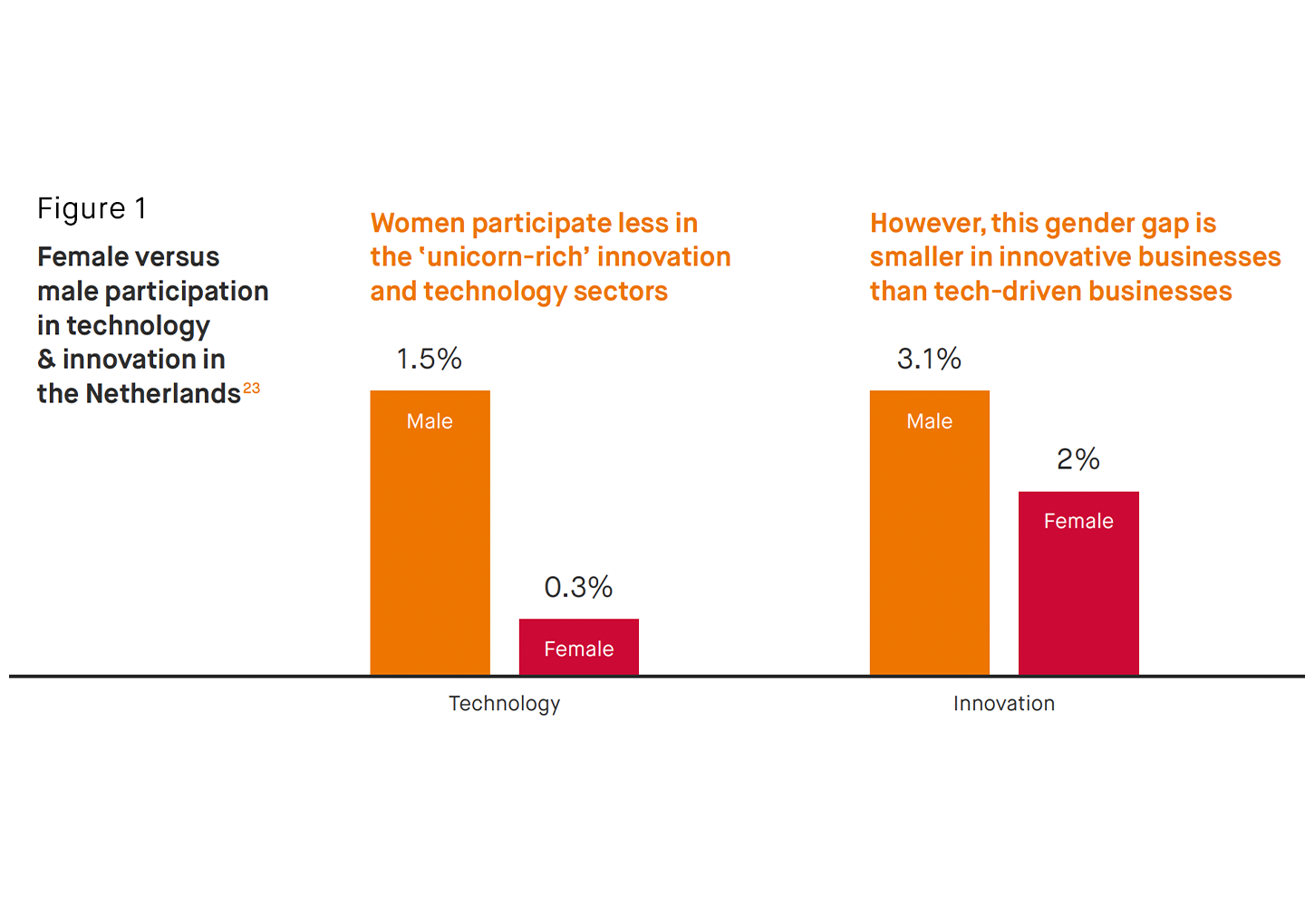
There is clearly a lot of untapped potential in the Netherlands when it comes to female ambitious entrepreneurship. Even though the number of women entrepreneurs is growing, those aiming for substantial growth are still rare. That becomes especially evident when comparing the growth-oriented entrepreneurship of Dutch women with Israeli or American (see Figure 2).
Even though solving this issue is far from straightforward, ecosystem support should probably focus more on facilitating ambitious female entrepreneurship to enhance their ability to attract venture capital and grow large, valuable businesses.
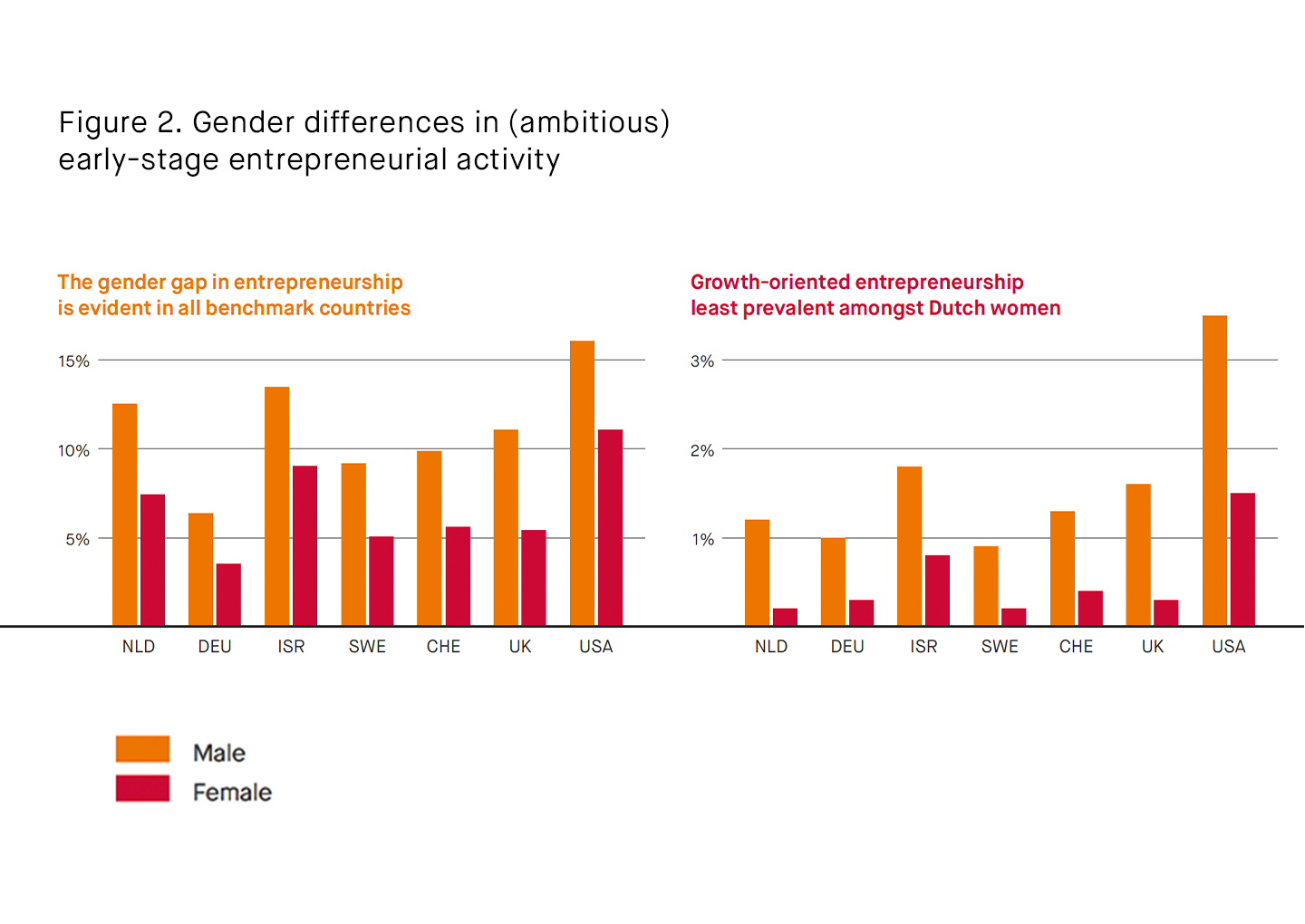
Through our research, we saw that the self-perceived confidence to start and run a business differs per previous entrepreneurial experience and gender. This way, if a founder has had previous entrepreneurial experience (good or bad), he or she is more confident in the success of their next startup launch. In fact, as Figure 3 showcases, the percentage of entrepreneurs who believe they can build a startup doubled for men and tripled for women.
Therefore, it is crucially important to encourage big ambitions and pay more positive attention to entrepreneurs who have discontinued their first entrepreneurial ventures. This way serial entrepreneurs might be better incentivised to share and build upon their learnings. Another way to do it is by fostering a culture of sharing and paying it forward between experienced and first-time founders. The experience of failure, an essential part of the entrepreneurial process can be very important in future (fruitful) attempts at ambitious entrepreneurship.
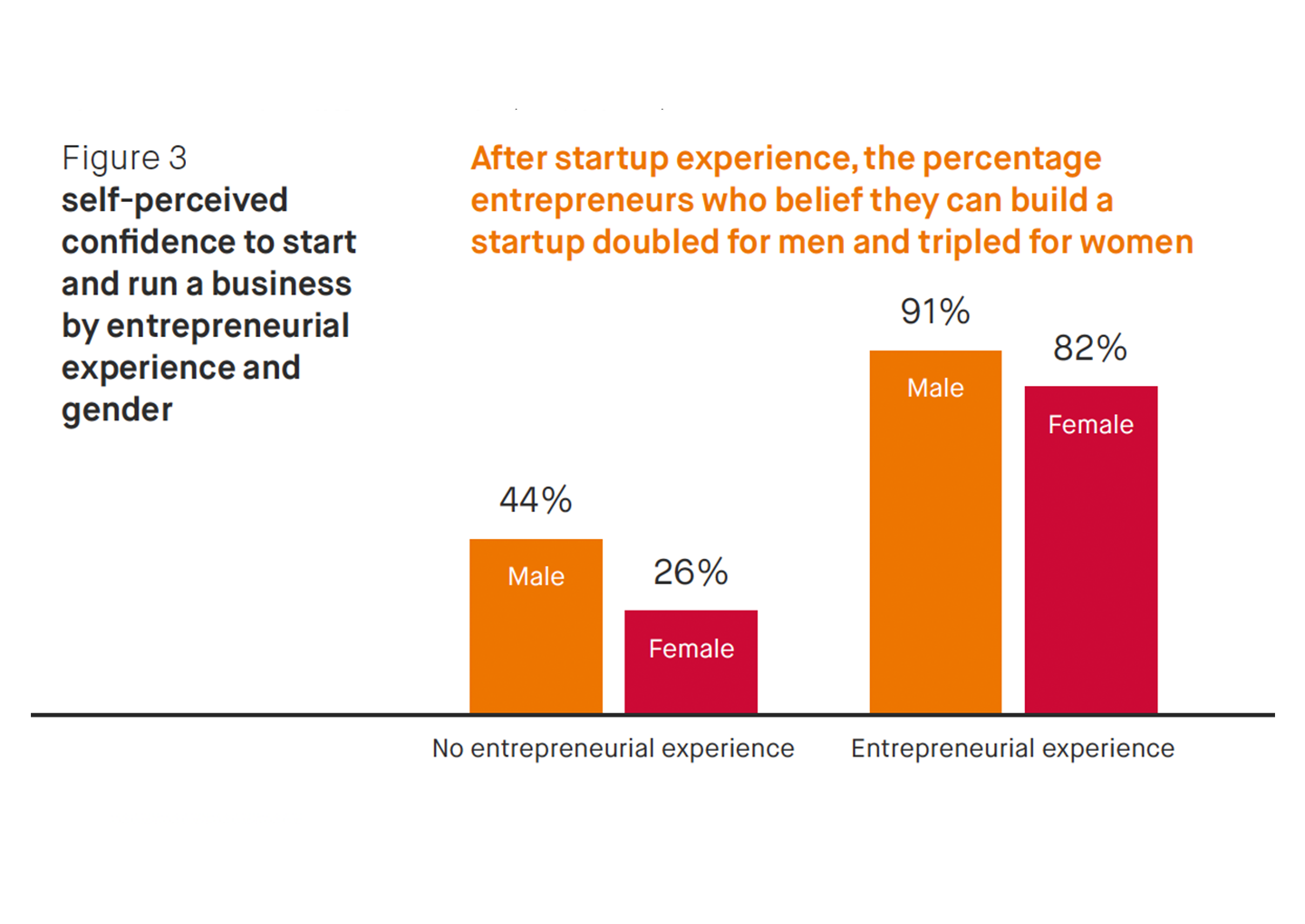
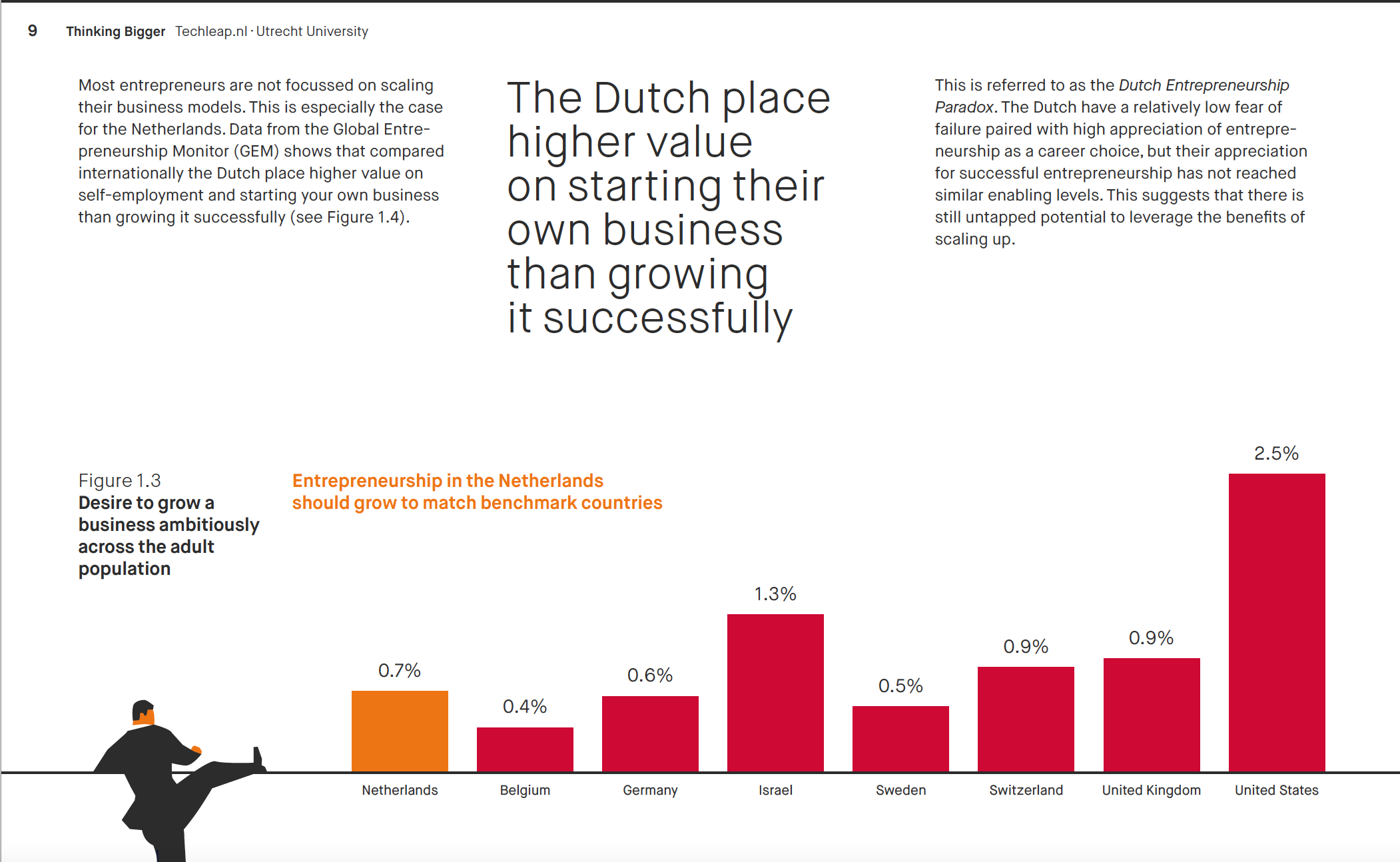
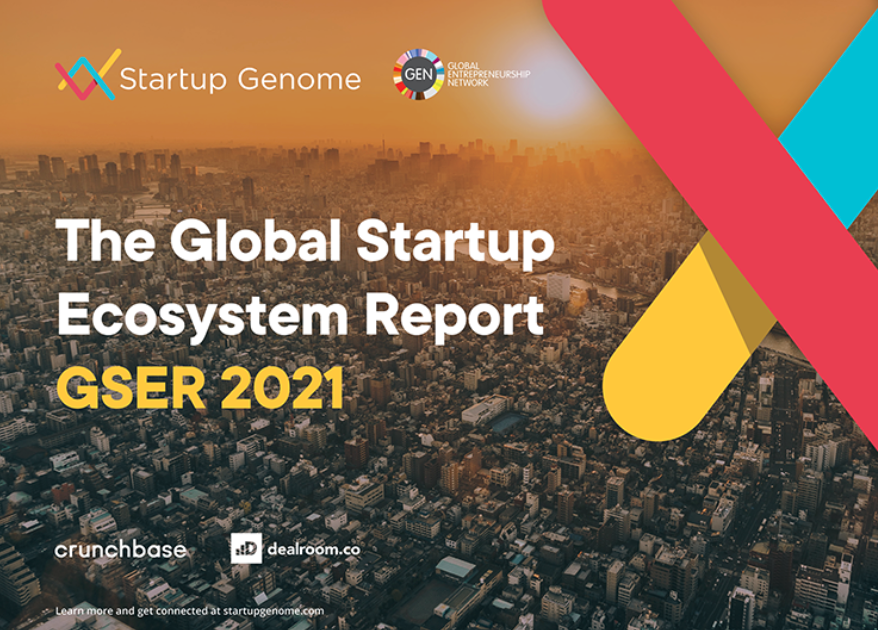
Startup Genome in partnership with Global Entrepreneurship Network has just released their 2021 edition of The Global Startup Ecosystem report. This report seeks to provide a comprehensive overview of the latest trends and developments in the global and European startup hubs. How did the Dutch startup ecosystem do in 2021? In this blog, we summarise the key findings and stats about the performance of the Amsterdam Delta hub in the past year.
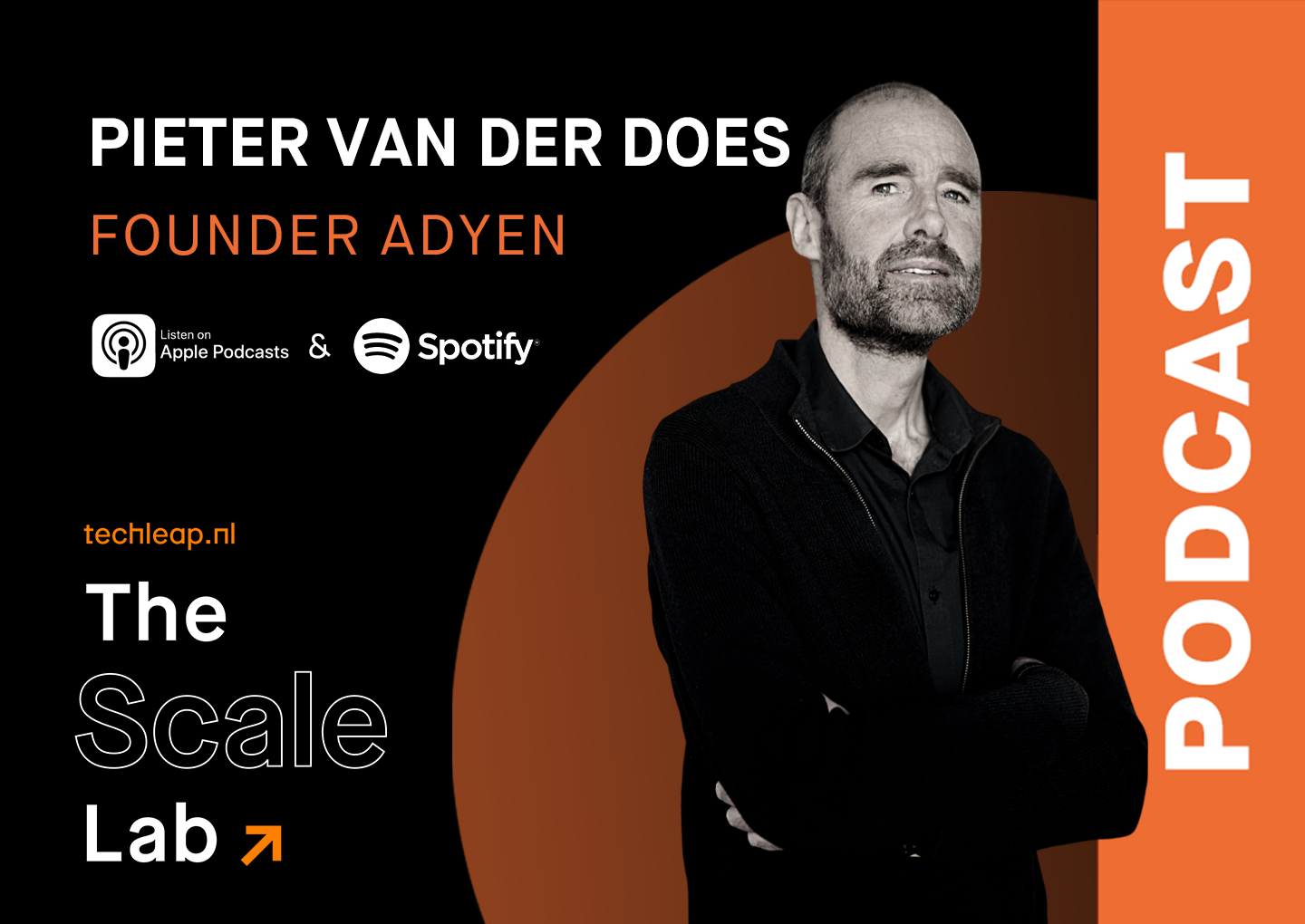
We couldn’t think of a better way to wrap up season #1 of The Scale Lab than having Pieter van der Does, CEO at Adyen, in our podcast studio. In our latest episode, Pieter shares his founder journey - from selling BiBit to founding Adyen. Listen to the full episode to unravel the key factors that make Pieter a scale icon of our age.

Dutch startup Momo Medical was recently accepted into the Y Combinator programme, where founder Menno Gravemaker is learning from Silicon Valley’s leaders how to scale the company and reach the next milestones.